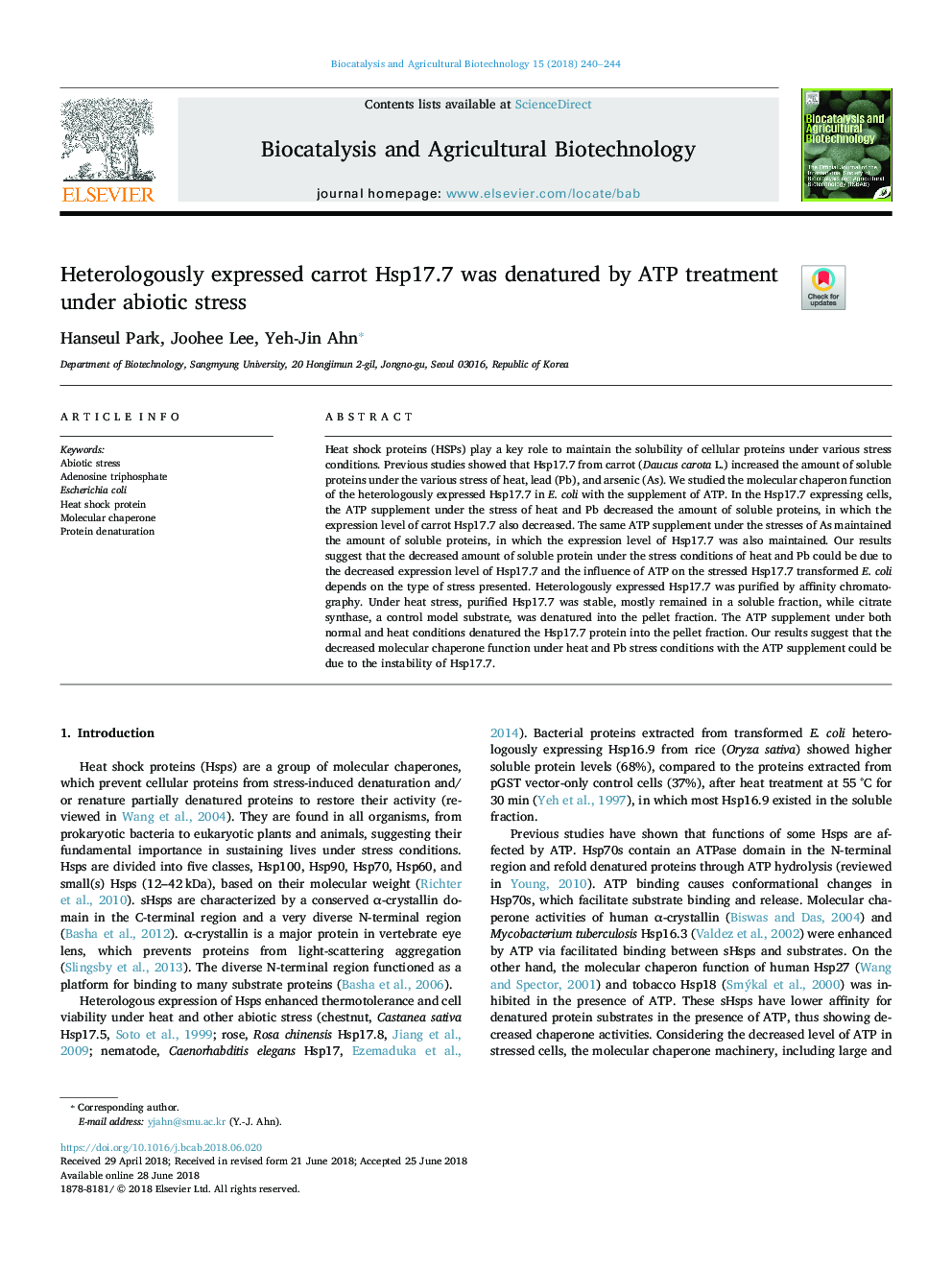| Article ID | Journal | Published Year | Pages | File Type |
|---|---|---|---|---|
| 8405638 | Biocatalysis and Agricultural Biotechnology | 2018 | 5 Pages |
Abstract
Heat shock proteins (HSPs) play a key role to maintain the solubility of cellular proteins under various stress conditions. Previous studies showed that Hsp17.7 from carrot (Daucus carota L.) increased the amount of soluble proteins under the various stress of heat, lead (Pb), and arsenic (As). We studied the molecular chaperon function of the heterologously expressed Hsp17.7 in E. coli with the supplement of ATP. In the Hsp17.7 expressing cells, the ATP supplement under the stress of heat and Pb decreased the amount of soluble proteins, in which the expression level of carrot Hsp17.7 also decreased. The same ATP supplement under the stresses of As maintained the amount of soluble proteins, in which the expression level of Hsp17.7 was also maintained. Our results suggest that the decreased amount of soluble protein under the stress conditions of heat and Pb could be due to the decreased expression level of Hsp17.7 and the influence of ATP on the stressed Hsp17.7 transformed E. coli depends on the type of stress presented. Heterologously expressed Hsp17.7 was purified by affinity chromatography. Under heat stress, purified Hsp17.7 was stable, mostly remained in a soluble fraction, while citrate synthase, a control model substrate, was denatured into the pellet fraction. The ATP supplement under both normal and heat conditions denatured the Hsp17.7 protein into the pellet fraction. Our results suggest that the decreased molecular chaperone function under heat and Pb stress conditions with the ATP supplement could be due to the instability of Hsp17.7.
Keywords
Related Topics
Life Sciences
Agricultural and Biological Sciences
Agricultural and Biological Sciences (General)
Authors
Hanseul Park, Joohee Lee, Yeh-Jin Ahn,
